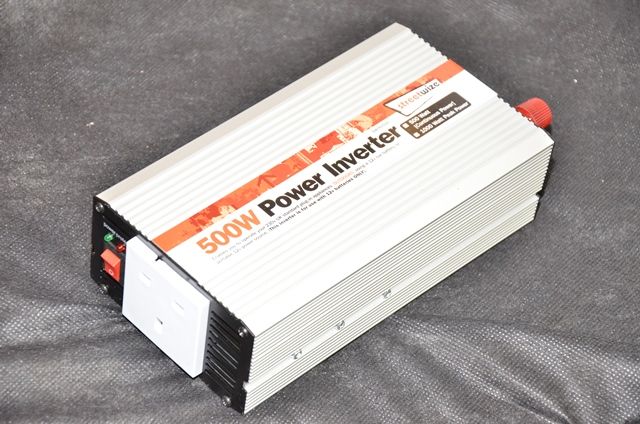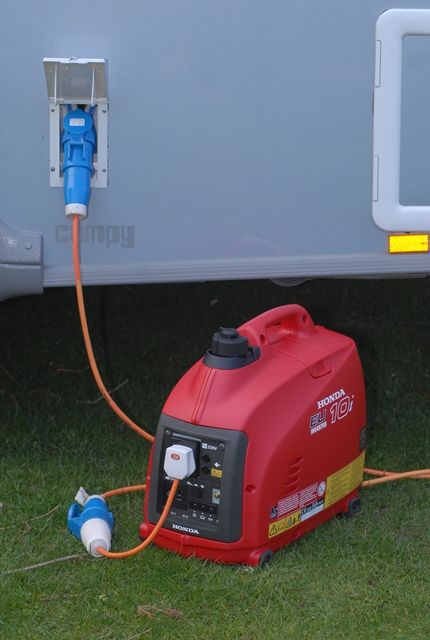12V supply
Most caravans and motorhomes have a 12V supply from a leisure battery or a supply unit that converts a supply to a nominal 12V. While 12V provides a voltage that should not cause a fatality from an electric shock it still has the potential to cause harm. The main hazard is from overloading supply cables. This causes heat to be generated and could lead to a fire. Always check the power rating of any equipment to be connected to a 12V socket for compatibility and consult your dealer before altering 12V wiring circuits unless you are competent to do so.

An inverter
Invertors
When you do not have access to a 230V mains hook-up you can use an invertor to provide a 230V supply from your 12V battery.
However, a 230V mains appliance taking a 1A supply from an invertor will require 20A from the battery, which can cause the battery to discharge rapidly and overload the 12V wiring system. It is also important to remember to take the same safety precautions with a 230V supply from an invertor as with a normal 230V mains supply.
Generators

A generator providing power to a caravan
A generator can be used to provide a 230V supply where a hook-up is not available, but this route is not without its drawbacks and safety issues.
Generally the least expensive generators will be the noisiest units, but even the quietest generators used on a quiet tranquil site or at night can cause disturbance to your neighbours. Club policy is that generators may only be used at the discretion of the Holiday Site Manager or the Steward on a meet or rally field.
Cheaper generators may cause electrical spikes or surges in voltage that can result in damage to the caravan’s sensitive electronic control systems. Allowing generators to run for a while to warm up before connecting can sometimes alleviate this problem, but it is better to buy a generator with the technology to provide a smooth surge-free electrical supply.
A generator must always be used outside because of the danger from exhaust and carbon monoxide. Always place it downwind and make sure the fumes do not go directly into other camping units. You will probably need to have a ventilated housing to shield it from rain and help keep the noise disturbance low. Do not forget the exhaust end of the generator will get very hot and can be a hazard to children and animals and give risk of fire if it is near long grass or other flammable material.
Normal electrical safety precautions are still vital as 230V is being generated, but there is the additional complication that a generator may not be compatible with a caravan supply system as the generator may not have an earthed supply as provided by a conventional hook-up. Before proceeding with a generator purchase, speak to your generator supplier and caravan dealer.
Finally
If you need further general information about using electricity on site you can contact the Club’s Technical Helpline. For detailed information about the suitability or safety of your unit’s electrical installation or appliances get advice from a technician at an Approved Workshop or a qualified electrician before going to your next campsite.
If you have feedback on our new format Datasheet, please let us know, using our short Feedback Form.